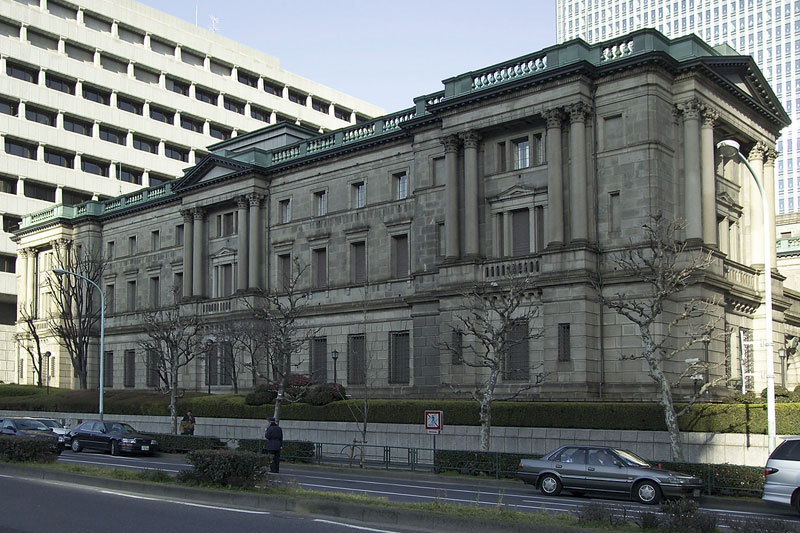By Reuters - The Bank of Japan kept monetary settings and its upbeat economic view unchanged on Wednesday in the wake of data showing the economy has slipped into recession, preferring to spend more time to gauge the effect of its surprise easing last month.
As widely expected, the BOJ voted to continue its purchases of government bonds and risky assets, maintaining its pledge of increasing base money, or cash and deposits at the central bank, at an annual pace of 80 trillion yen ($683 billion).
"Japan's economy continues to recover moderately as a trend, although some weaknesses remain mainly in output," the BOJ said in a statement after its policy meeting.
It revised up its view on exports to say they were "flat," compared with last month's assessment that they were weakening.
Board member Takahide Kiuchi, a skeptic of the current quantitative easing program, dissented to the policy decision in a show of his continued disapproval to last month's surprise monetary easing that was made by a closely split vote.
The meeting came in the wake of data on Monday which showed the world's third-largest economy unexpectedly slipped into recession in the third quarter, as the hit to spending from a sales tax hike in April overwhelmed the impact of massive pump-priming by the BOJ and the government.
On Tuesday, Premier Shinzo Abe said he would call an early election to seek a fresh mandate for his economic policies, and would postpone a second increase in the tax slated for 2015.
The dismal third-quarter gross domestic product (GDP) data likely came as a shock to many BOJ officials, who had hoped they pre-empted risks to the inflation outlook by expanding monetary stimulus last month.
Markets are focusing on what BOJ Governor Haruhiko Kuroda will say about Abe's decision to postpone the tax increase to 2017 and what the grim GDP data could mean for the policy outlook. Kuroda had urged the government to proceed with the tax hike as scheduled.
In announcing last month's stimulus increase, Kuroda stayed upbeat about the economy, saying the move was aimed at pre-empting risks of a slowdown in inflation.
But the second straight quarter of contraction will almost certainly force the BOJ to cut its forecast of a 0.5 percent economic expansion for the current fiscal year at a quarterly review of long-term projections in January, analysts say.
Any signs that Kuroda's conviction about the recovery is wavering could spur speculation of more easing early next year, they say.
"Both prices and the economy are undershooting the BOJ's forecasts. That will heighten market expectations of further easing," said Yoshiki Shinke, chief economist at Dai-ichi Life Research Institute.

Shinke is among a growing number of analysts who see the economy shrinking in the current fiscal year ending in March 2015, and now projects a 0.8 percent contraction.
The postponement of the tax hike compounds problems for Kuroda, who already faces a divided board and markets that are questioning his credibility.
The BOJ now gobbles up almost the same amount of government bonds that are issued each month, a move critics describe as tantamount to debt monetization.
The delay in raising the sales tax stokes worries that the BOJ's ultra-easy monetary stance is bank-rolling an alarmingly high public debt, already the highest among major economies.
